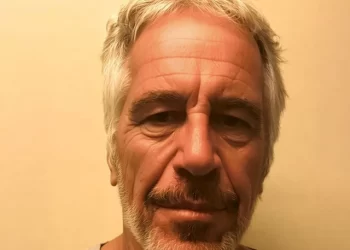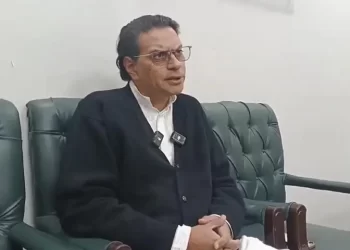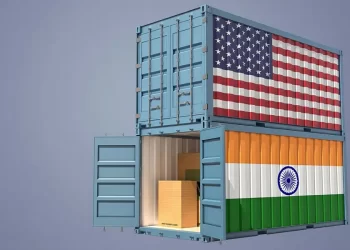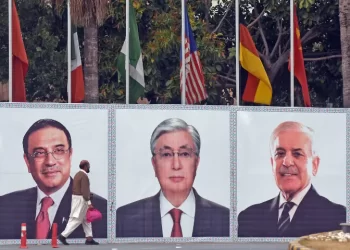Israel is possibly committing war crimes by expanding its war on medics from Gaza to south Lebanon, say rights groups.
Most evenings in al-Habbariyeh, a small town in southern Lebanon’s verdant hills, the young volunteers of the Lebanese Emergency and Relief Corps centre liked to get together to play cards or share an argileh (hookah).
On March 26, a clear, brisk night, Abdullah Sharif Atwi, Abdulrahman al-Shaar, Ahmad al-Shaar, Baraa Abu Qais, Hussein al-Shaar, Muhammad al-Farouq Atwi and Muhammad Ragheed Hammoud were in the second-floor hangout.
The Israeli drones hovered overhead, they had been going all day and now their sound was fading almost into the background.
The group was in high spirits, taking videos of themselves and joking about.
About half an hour after midnight, just into March 27, Israel hit the centre with an air strike, levelling the two-storey building.
“People from the village ran down to see what happened,” Ali Noureddine, a journalist and activist from al-Habbariyeh, told media. “It’s a small village,” he said. “We’re all one family.”
The seven young men had been killed and four others badly injured.
Most of the 18-to-25-year-olds had been students.
An attack on a cafe in Ras al-Naqoura killed a medical worker from Amal’s Al-Risala Scouts and three others, including one Amal member.
The third attack that day was in Tayr Harfa which killed two paramedics from Hezbollah’s Islamic Health Association along with four Hezbollah fighters.
The Israeli army spokesperson said the al-Habbariyeh attack successfully targeted a “significant terrorist” in al-Jamaa al-Islamiya.
Hunted health workers
“They didn’t say who the ‘terrorist’ was,” Mahyaddine Qarhani, director of the Lebanese Emergency and Relief Corps’ Ambulance Association, told media.
Investigations by human rights organisations found no evidence of military activity or fighters on-site.
More than 92,600 people have been displaced from southern Lebanon by the relentless Israeli attacks, according to the International Organization for Migration.
The people still in the south are vulnerable, like the elderly and lower-income people who rely on the medical services the Lebanese Emergency and Relief Corps provides.
Like many services in the country, Lebanon’s healthcare is mostly privatised as the Ministry of Public Health relies on private groups and NGOs to fill the gaps.
The medical situation in Lebanon was already deeply affected by a five-year-old economic crisis, with 80 percent of the population below the poverty line.
Now, the south is also contending with war and with its few medical workers and facilities being targeted by Israel.
Data on the attacks on south Lebanon are hard to find, with locals saying many incidents go unreported.
media collected data from monitoring groups indicating at least 18 Israeli attacks on medical personnel and facilities, resulting in the deaths of 20 health workers.
They include members of Lebanon’s civil defence and health workers for the medical branches of Hezbollah, the Amal Movement and al-Jamaa al-Islamiya.
Each group has an armed wing engaging with the Israeli military but their healthcare workers are protected by international humanitarian law.
This protection as medical workers lapses only if they participate in military activities.
There has been no evidence that this was the case in any of the attacks on medical workers, multiple sources, including representatives of leading human rights and monitoring agencies, told media.









